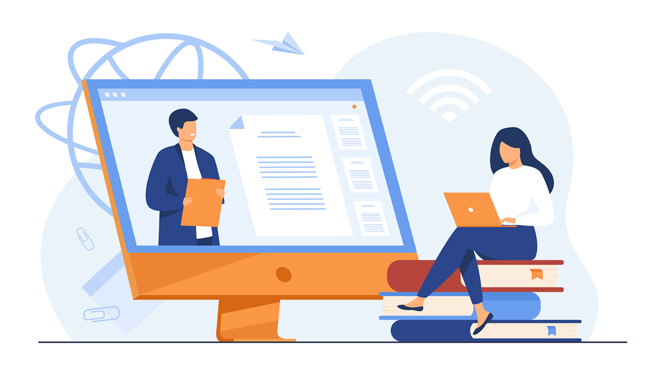Today, the landscape of business and the market is undergoing a huge transformation. Organizations are facing cutthroat competition from one another. The demands of consumers are changing too. Thus, to fight this battle, an organization needs to upskill or reskill its workforce continuously.
The sales team plays a very important in any organization. They are the face of the organization who helps in:
- Building trust and loyalty between the organization and the customers
- Brand building
- Increasing revenue and profits through sales
- Establishing a communication channel between the organization and the customer
- Create sales opportunities
- Close deals
As the sales team is the lifeblood of your organization, it becomes important to arm them with good skills so that they can fight the battle. The stronger the salespeople, the stronger will be your organization.
What is Sales Training?
Sales training is a process to provide employees with the required skills and knowledge so that they can help you in tapping the sales. This includes equipping them with skills like communication with the customers, influencing them, and attracting them towards your organization.
A learning management system or an LMS can help your organization in boosting sales training. An LMS is a web-based software that helps in planning, implementing, and tracking the training and learning process. It offers employees anytime and anywhere learning and also provides highly engaging eLearning content.
Though many organizations have already adopted an LMS for sales training, now they are realizing that it isn’t enough. Hence, your organization needs a new and modified LMS that can do wonders for your sales and marketing.
So before you pick an LMS for sales training of your employees, make sure it has the following features in it.
1. Active Learning
The traditional corporate LMS offered few learning opportunities. The employees had to themselves search for the eLearning courses and content. But this shouldn’t be so. Why make your employees spend extra energy surfing eLearning courses?
Just like YouTube, Google and Instagram give users suggestions and recommendations based on their recent searches, make sure your LMS offers this feature to the sales team as well. By providing intuitive navigation to the sales team, they can upskill themselves. For instance, online learners or employees can be recommended eLearning courses and content like- “how to get a faster promotion? How to improve your communication skills? Tips and tricks to excel in your current role”. This way, the sales employee will better understand his position as a learner.
2. Off the Shelf Content
Most organizations these days lack the skill and resources required to make customized eLearning content for various sales training programs.
An off-the-shelf content provides ready-to-go eLearning content to the employees that require no additional content. You can integrate your LMS with an online digital library so that the employees can easily hunt for good content even on the internet.
3. Mobile Learning
Due to over-reliance on mobile devices, employees seek just-in-time learning. A mobile-friendly LMS paves the way for self-paced learning. Thus, the learner’s journey is decided by himself. He can access the eLearning modules anytime and anywhere. This is very important for sales employees who have to manage work and online training simultaneously.
4. eLearning Authoring Tools
Using content authoring tools,eLearning content modules can be made with a simple drop-and-drag function. This allows you to create customized multimedia content by including video, images, infographics, and text. By creating pint-sized modules, it becomes easier for salespeople to digest and assimilate the content. This also solves retention and engagement issues.
5. Multilanguage Support
Traditional LMS offered to learn but was restricted to the use of the English language. This acted as a barrier to online training.
A multilingual LMS not just provides eLearning content in multiple languages but also changes the entire user interface. By localizing the eLearning content, the employees will develop more interest and understanding and will better be able to perform.
6. Use VR Technology
An LMS and VR technology together promote experiential learning. This means that employees learn through their own experiences. They don’t need to practice in front of the mirror or with friends. They can prepare their presentation and, using a VR headset, can practice in a simulated environment, where they feel they are surrounded by customers. Based on their performance, they can also get instant feedback on their style of talking, eye contact, choice, and delivery of sentences. Thus, a combination of an LMS and VR gives an immersive experience for online learning. This is a relief for the online instructors as well as their work is reduced.
7. CRM Integration
CRM-LMS pairing is a match made in heaven. If the salespeople can understand the customer’s needs, requirements, and choices in advance, what can be more good than this? You must make sure that your LMS is integrated or paired with the customer relationship management (CRM) system. By enabling this, the salespeople can access all the relevant information about customers and can easily close deals.
8. Collaborative Learning
An LMS is not just a platform for individual learning, but it is also a platform that brings together the entire organization in one place and promotes social interaction.
During online training, salespeople might get stuck at some point and would want to get their doubts cleared. So an LMS must be equipped with chat rooms, community forums, discussion boards, private chat corners, query corners, and so on to leverage online learning.
9. Multi-tenant Support
Every organization consists of various departments like the marketing department, sales department, accounts department, IT department, customer relationship management department, and so on. The employees of these departments require different skills to do their tasks. As the organization uses the same LMS for training all the employees, it is important to divide them into different categories or roles and allot the relevant eLearning courses.
Conclusion
If your LMS has the above-mentioned features, then the sales team can help your organization to achieve great heights. It does not just help the organization to reap profits and raise revenues but, also helps the salespeople to close learning gaps.




Leave a comment
Have something to say about this article? Add your comment and start the discussion.